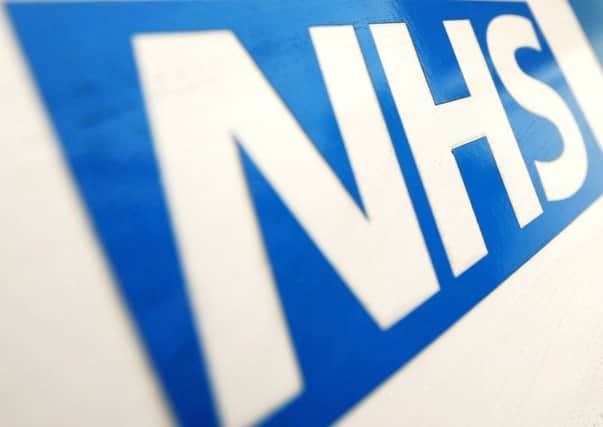NHS financial crisis worsens as demand soars


Regulator Monitor said foundation trusts ran up a deficit five times higher than expected at £321 million by the end of December.
More than half of the 149 trusts - seen as a hallmark of excellence in the health service - were in the red as increased pressure from patients combined with the continued need to make cost savings put them under “exceptional pressure”.
Advertisement
Hide AdAdvertisement
Hide AdThe use of expensive agency staff is also having a drastic impact on budgets, officials said.
Foundation trusts serving Yorkshire which are currently predicting they will be in deficit for 2014-15 include Calderdale and Huddersfield, Barnsley, South Tees, Northern Lincolnshire and Goole, and the Humber NHS trust, which provides mental and community health services. Others are struggling to break even, while some are using reserves to make up shortfalls.
Significant numbers are facing difficulties cutting costs, which will exacerbate financial difficulties in the coming 12 months amid further uncertainty triggered by the rejection by major providers of the NHS financial settlement for 2015-16.
Meanwhile the Hull and East Yorkshire NHS trust, which is not a foundation trust, has reduced its forecast for 2014-15 to break even amid early forecasts it faces a £10m deficit next year even if it achieves £20m in savings.
Advertisement
Hide AdAdvertisement
Hide AdThe trust has been beset by difficulties including a failure to hit A&E targets since August, a critical report by the Care Quality Commission highlighting staff shortages and accusations of bullying, as well as major management upheaval.
Bed shortages have led to an increase in cancellations of planned surgery, while only two thirds of efficiency savings have been achieved, leaving a £7.7m shortfall. Costs of temporary staff have also soared.
Executives are drawing up a financial recovery plan which could see more treatment outsourced.
Richard Murray, director of policy at the King’s Fund, said: “The mounting deficits make an NHS overspend this financial year more likely, meaning that the extra funds that the Government made available to the health service for the next financial year may be needed to pay off this year’s deficit.
Advertisement
Hide AdAdvertisement
Hide Ad“If a solution is not found to these mounting financial difficulties, then patients will bear the cost as staff numbers are cut, waiting times rise and quality of care deteriorates.
“A new health and social care transformation fund should also be established to meet the cost of essential changes to services. This is a big ask in the current financial climate but the money to do this cannot be found from existing NHS budgets.”
Adam Roberts, senior economics fellow at healthcare charity the Health Foundation, said: “Today’s figures from Monitor act as a reminder that financial deficit is now the norm for NHS providers.
“The task for the NHS to break even looks increasingly impossible.”
Advertisement
Hide AdAdvertisement
Hide AdPaul Briddock, director of policy at the Healthcare Financial Management Association, said the foundation sector deficit was “alarming”.
He said: “Given the challenges facing the NHS, it cannot continue to work in the same way that it has in the past.
“Major changes to the way it delivers services, particularly around more joined-up models of care across health and social care economies, are needed.”
Hull and East Yorkshire Hospitals NHS Trust said: “Difficulty in meeting our performance targets along with the associated contract penalties, plus failure to meet our own efficiency savings targets, mean that we are now forecasting a break-even position at the year-end as opposed to a surplus.
Advertisement
Hide AdAdvertisement
Hide Ad“The year ahead is also likely to bring its challenges, but we remain committed to providing safe, high quality patient care throughout.”
Waits in A&E units in England worsened last week as the NHS missed a target of seeing 95 per cent of patients within four hours for the 20th week in a row.
NHS England said 91.6 per cent of patients spent four hours or less from arrival to admission, transfer or discharge in the seven days to last Sunday, down from 92.9 per cent the previous week.
It came as the level of admissions reached its highest levels since the peak at Christmas with 420,700 patients - up from 407,000 the previous week.
Advertisement
Hide AdAdvertisement
Hide AdHull and East Yorkshire Hospitals NHS Trust saw the second worst A&E performance in the country, with only 72.3 per cent of patients seen in four hours. Other trusts to miss the target include Calderdale and Huddersfield, Mid Yorkshire, Sheffield teaching hospitals, Doncaster and Bassetlaw, Rotherham, Chesterfield, Northern Lincolnshire and Goole, York and South Tees.